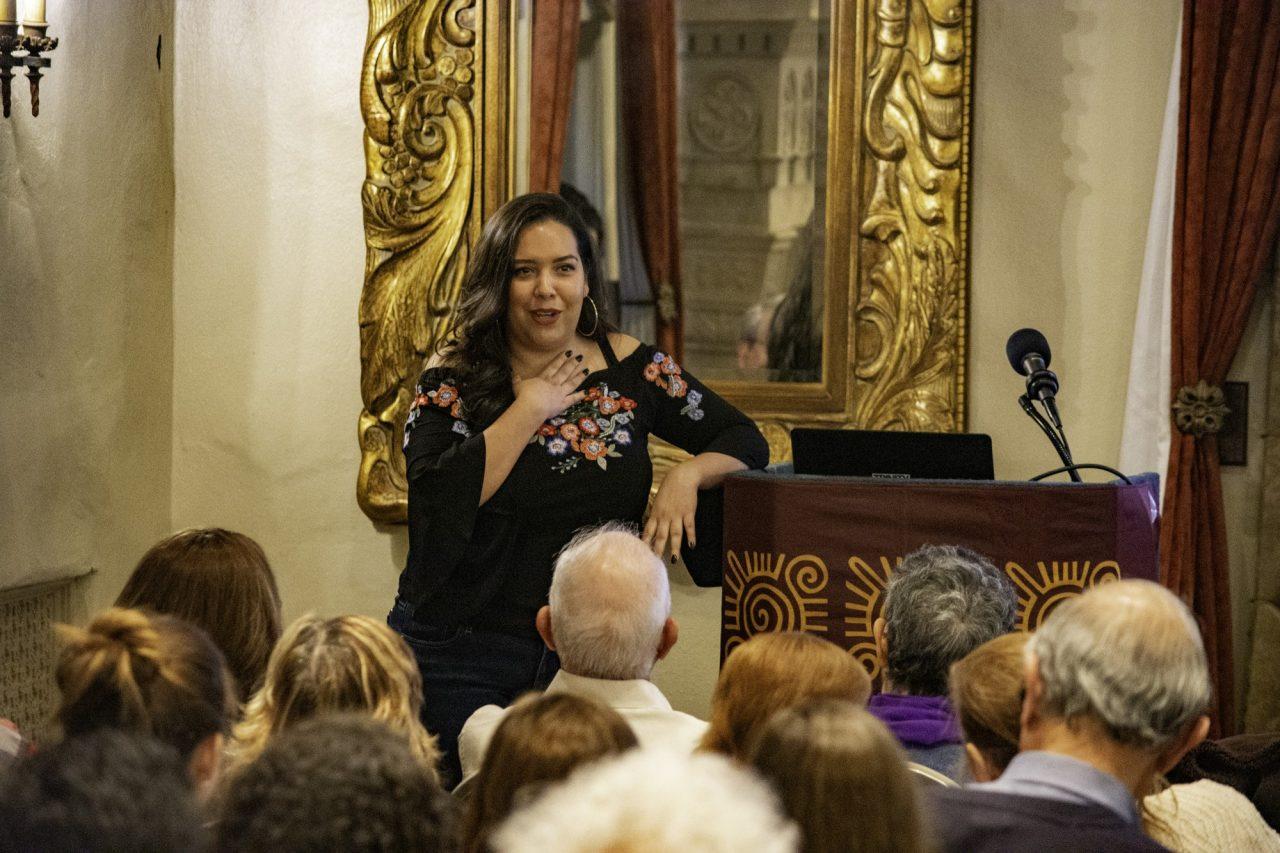Photo by Martina Almeida
Based on a true story, “My Name is Maria de Jesus” is a short film set in San Antonio that flashes between 1956 and the present day to show how events in Maria’s childhood continue to affect her as she grows up.
MAS — a Trinity program short for Mexico, the Americas and Spain — hosted a screening and talkback about “My Name is Maria de Jesus” on Tuesday, Jan. 28. The director of the film, Marcella Ochoa, along with three of her cousins, was present at the screening and shared more about her experience and projects afterward.
As a child, Maria was forced to go by the name Mary Jessie to better “fit in” with the American community in which she lived. As an adult, her life was changed by the loss of her name, an important part of her culture. Her daughter experienced similar struggles as well, feeling unwanted in the classroom because of her heritage and the color of her skin. Additionally, she felt out of place in her own culture, unable to fluently speak Spanish and pushing away her grandfather, who represented so much of Latin culture.
Both Mary Jessie and her daughter Marissa struggled to exist between their Spanish and American experiences, not feeling fully at home in either sphere for some time. The short film artfully expresses this very real conflict and how the family managed to find their home despite the oppression they dealt with.
Several Trinity students resonated with the themes discussed the short film.
“I felt like I was in the movie,” sophomore Thomás Peña said. “It was only 18 minutes long, but every second was so intense for me — it was an emotional roller coaster.”
Sophomore and member of the Trinity University Latin Association Maria Arteaga also attended the screening.
“Seeing how people were so oppressed … we are going through the culture of still being oppressed, but our problems aren’t as big as theirs,” Arteaga said. “It gave me a sense of hope.”
She also discussed the way the Ochoa family was forced to lose some important parts of their heritage in order to live in America.
“Their kids don’t know Spanish because they were so scared by what had happened,” Arteaga said. “And now the next generation is so focused on learning Spanish and learning the culture.”
The idea of language in the short film was another intregal part of the film that students wanted to discuss.
“When I got to the U.S. my mom didn’t let me speak Spanish in the house. The primary goal when I was younger was to learn English, so it really touched me to see that kind of film,” said junior Brenda Guerra.
Peña also had experiences similar to those portrayed in the short film.
“Maybe the way I grew up I was a secondary effect to some of the things that took place in the 50’s,” Peña said. “I can see that, after walking away from this film. I was raised bilingually, learning English and Spanish but with an emphasis on English. Even my name is pronounced ‘Tomás’ but it has an ‘h’ in it like Thomas. I asked my family, why did you name me Thomás with an ‘h’? It was to Americanize me.”
One of the themes emphasized in the short film was the importance and meaning of names. Its emphasis was something that greatly impacted Arteaga and was part of what made the film so powerful for her.
“A name defines you,” Arteaga said. “It defines your whole culture. [Maria de Jesus] says in the film, ‘I was named after my grandmother.’ Sometimes we think that a name is just something we answer to, but where your name comes from matters a lot.”







